EVENT PHOTOS
[Right-Click The Image To Download]
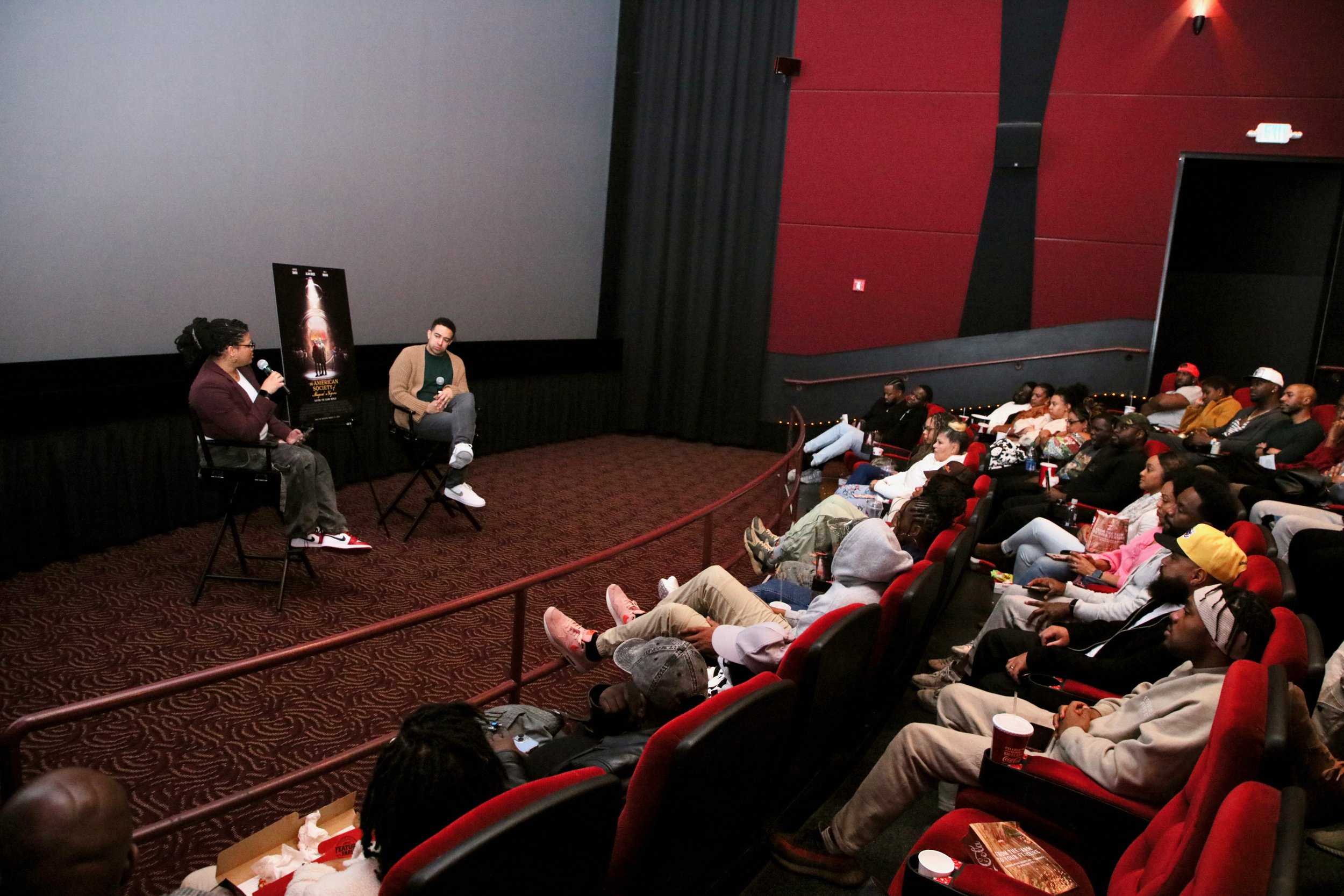
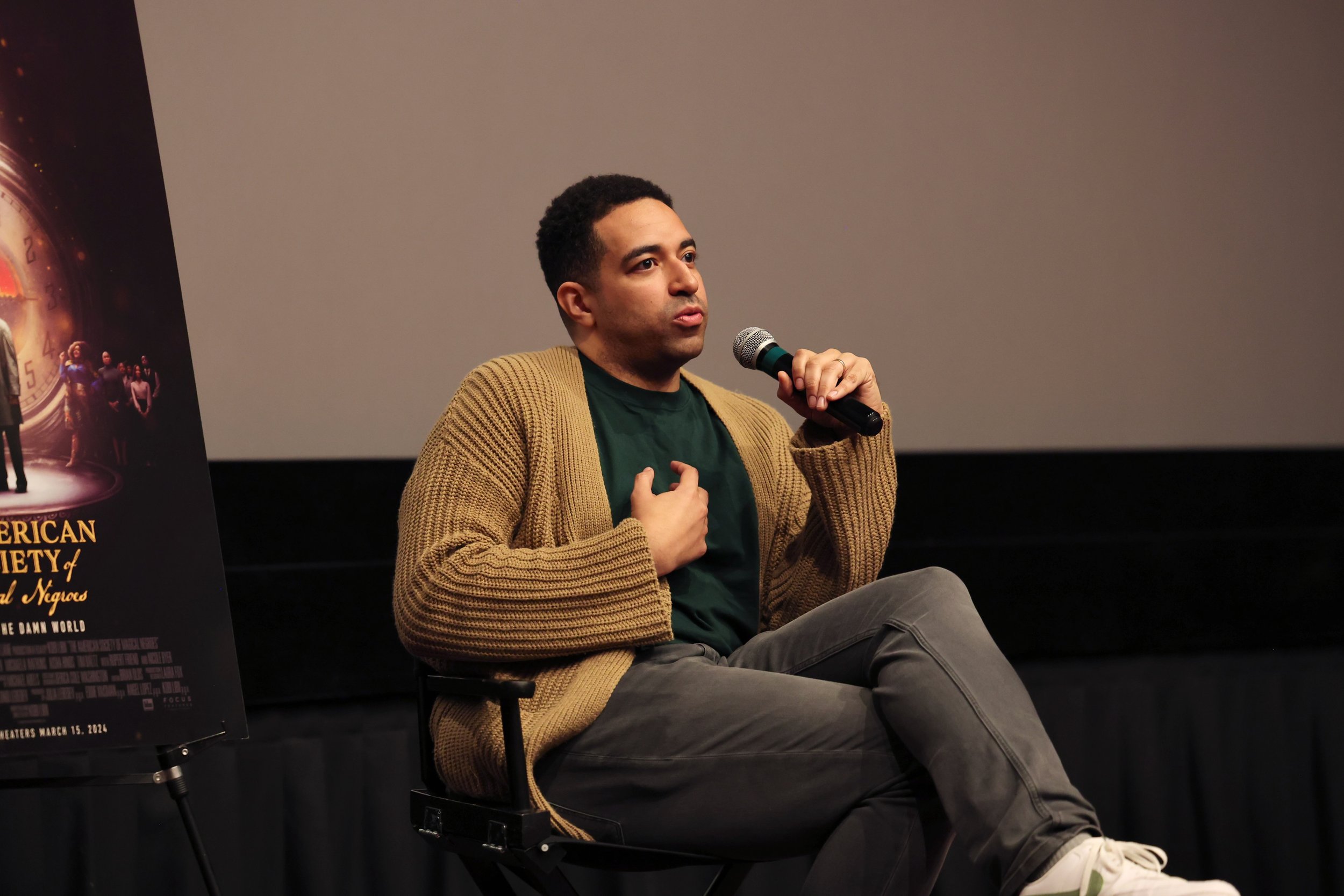
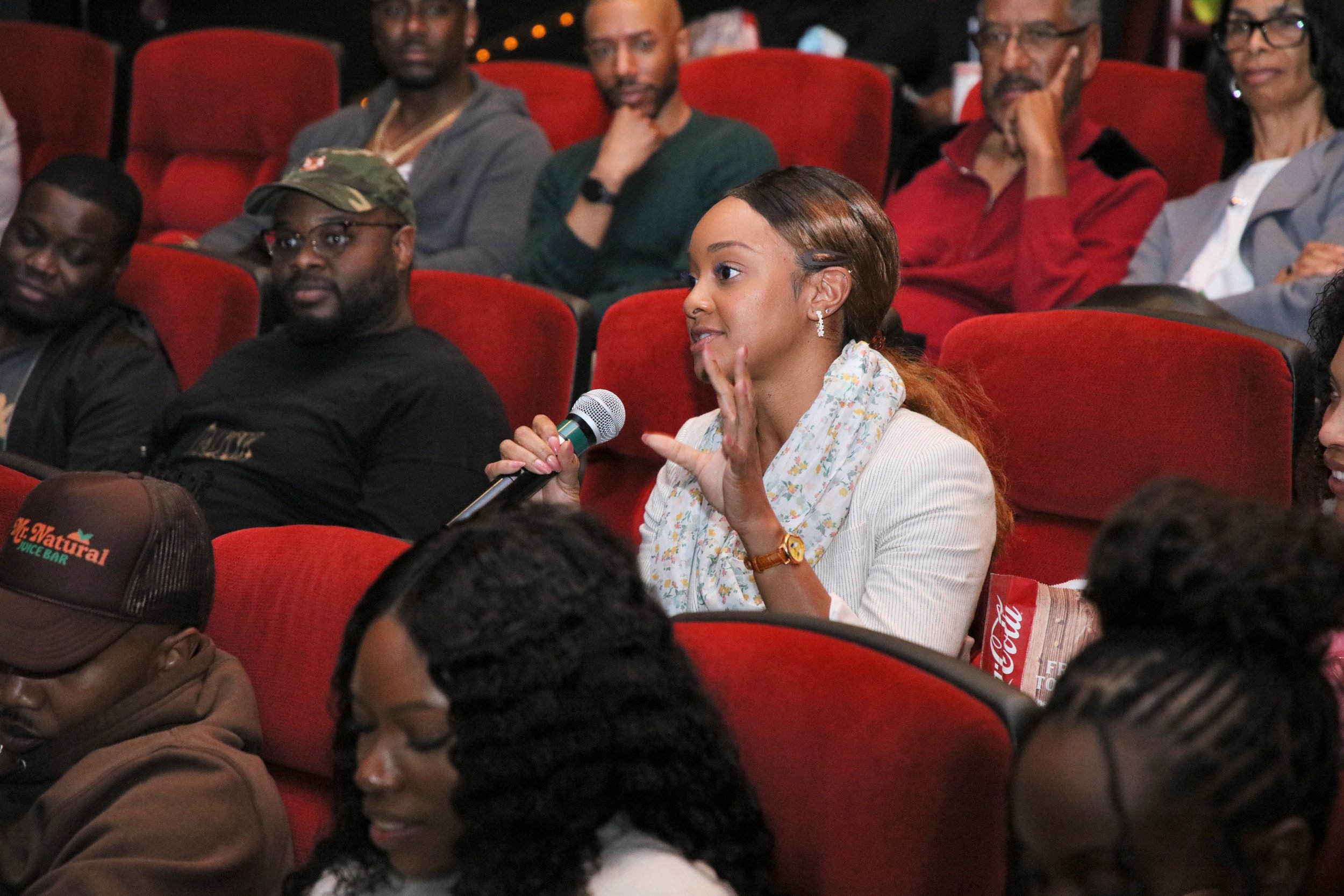
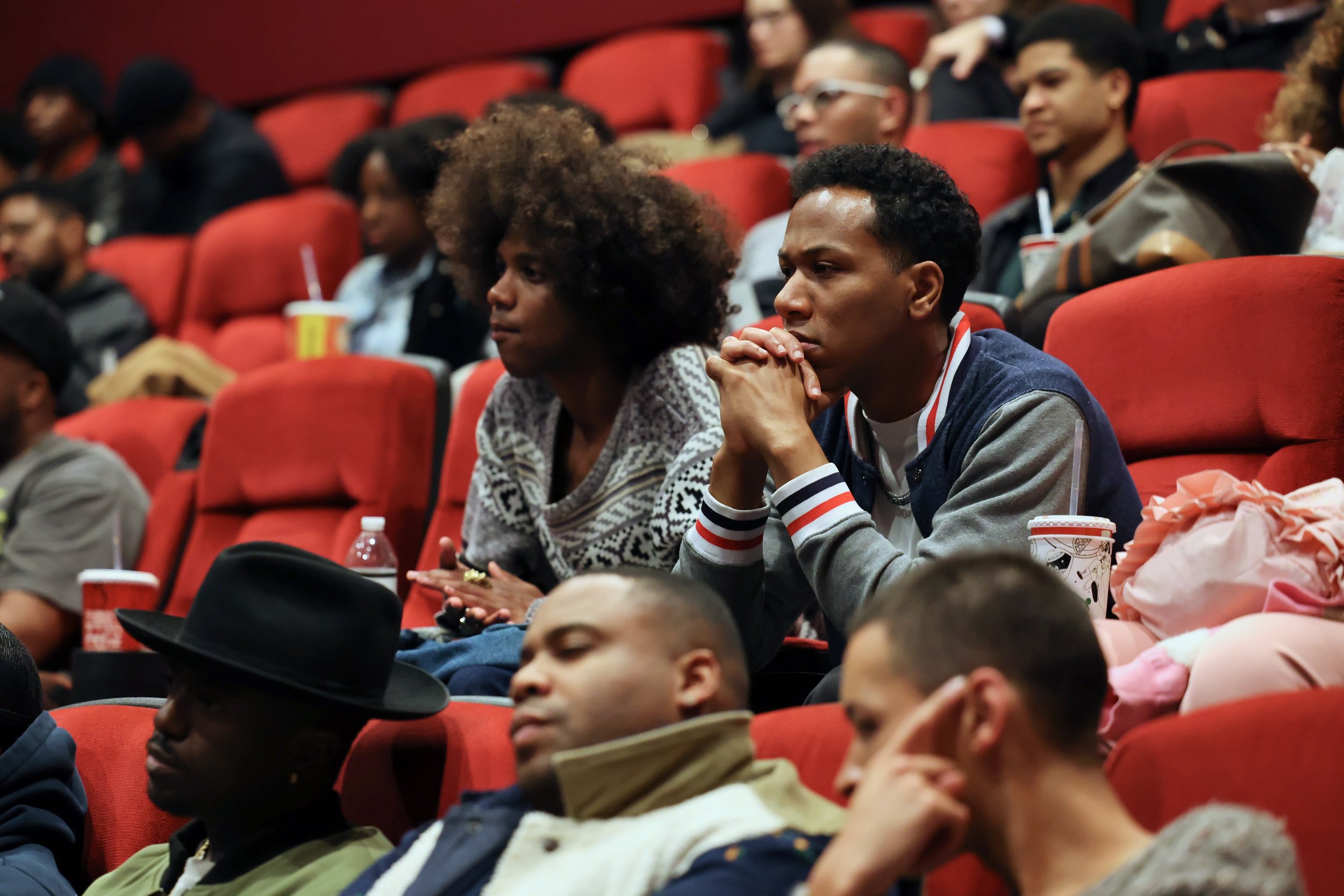
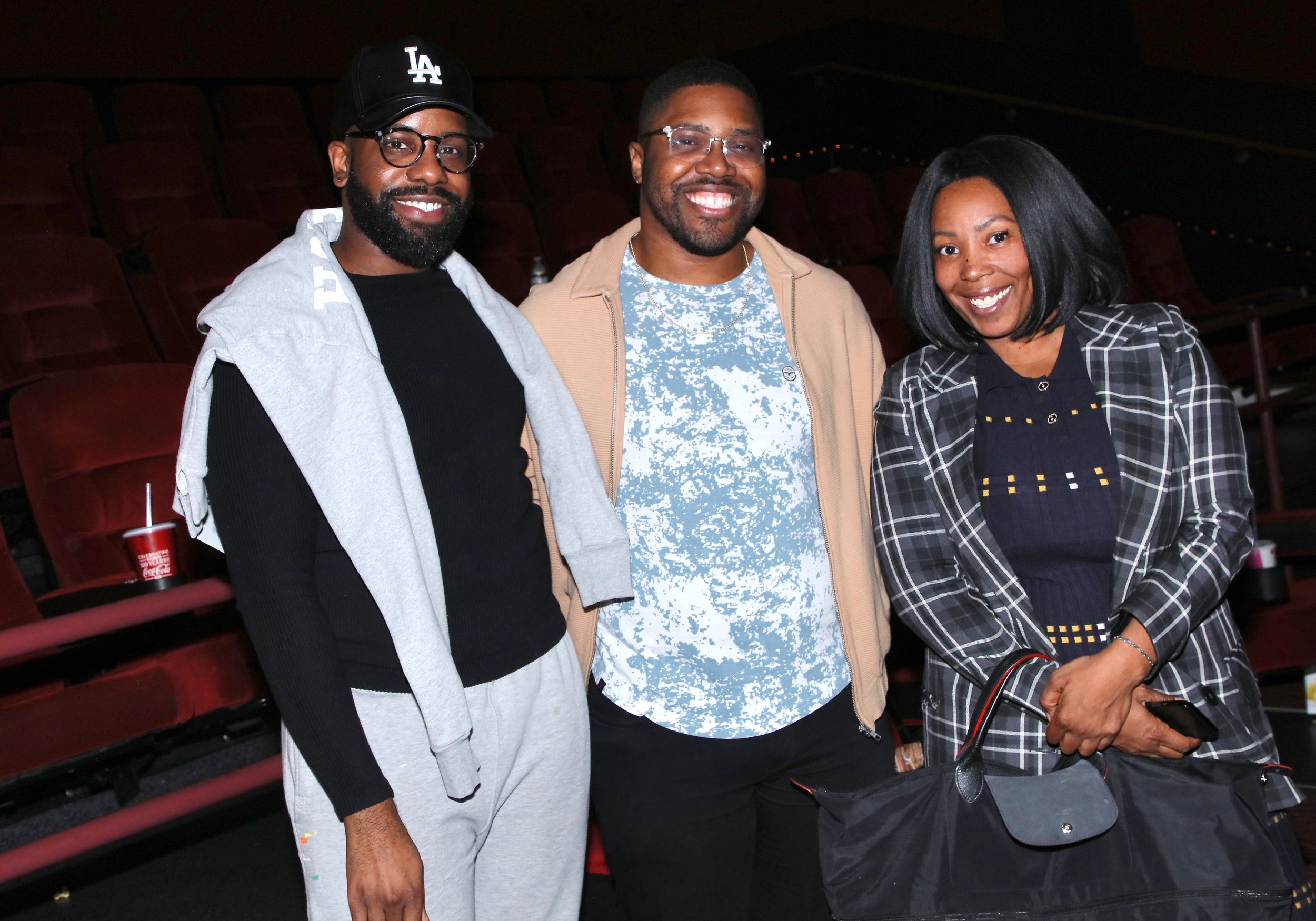
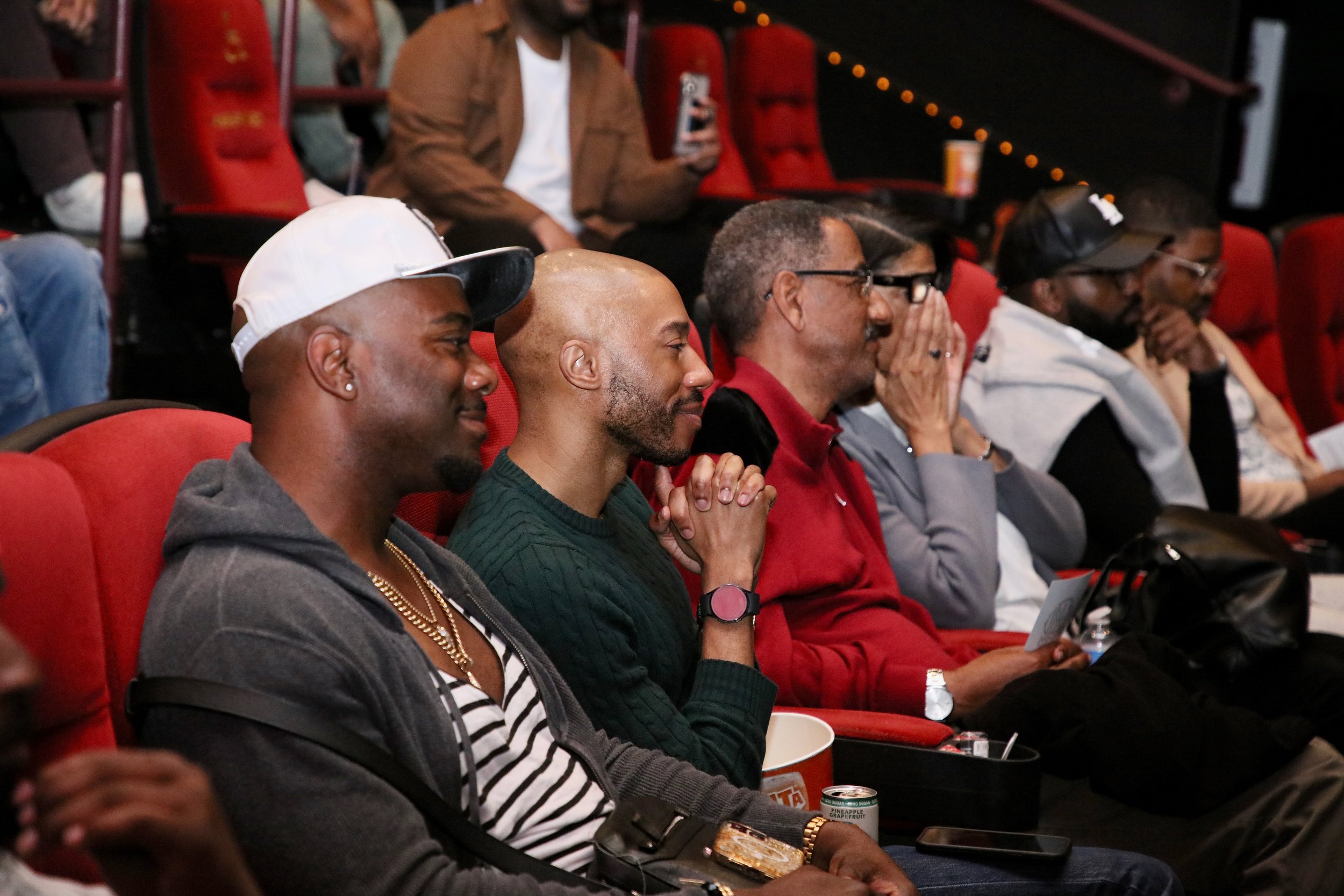
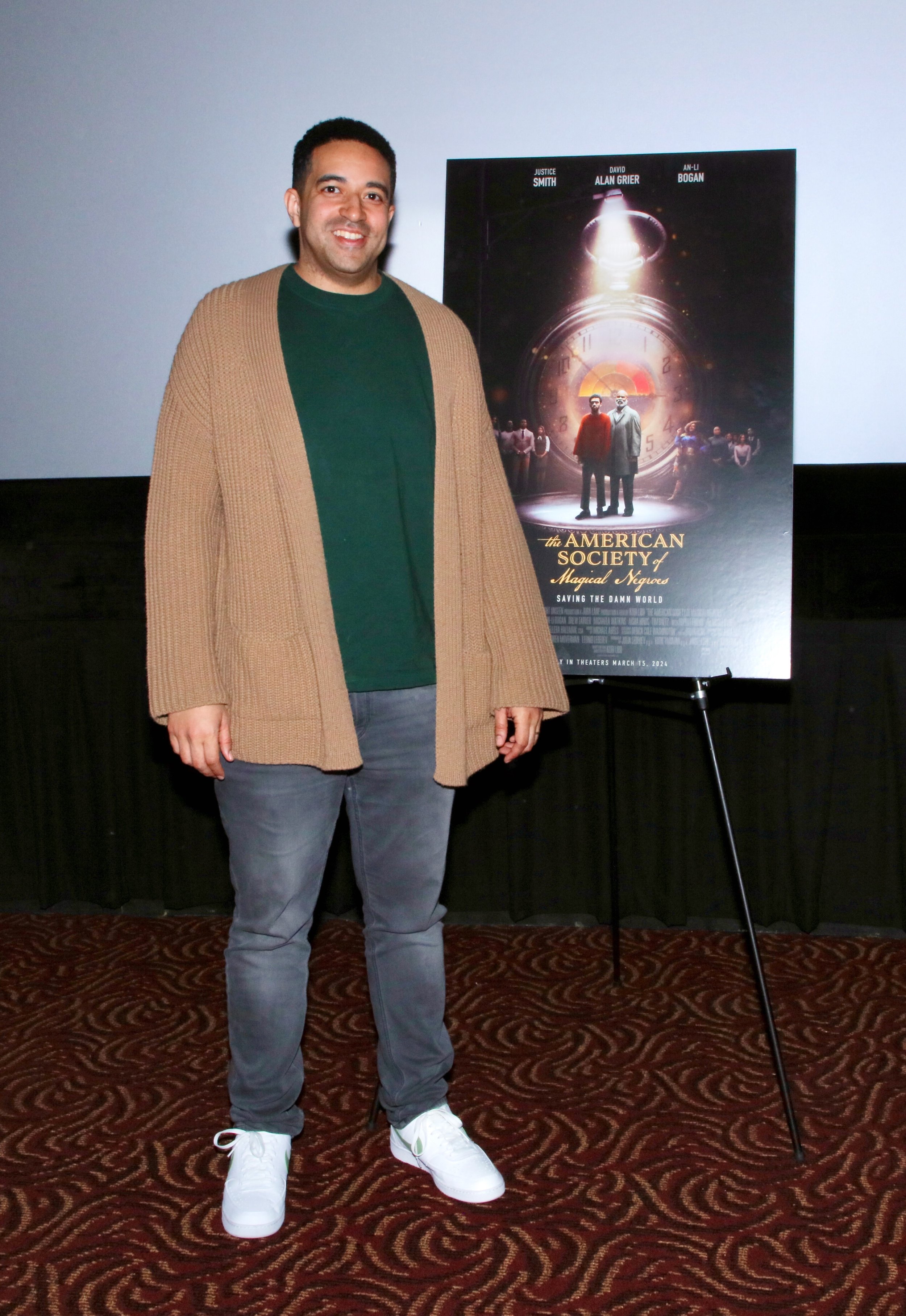
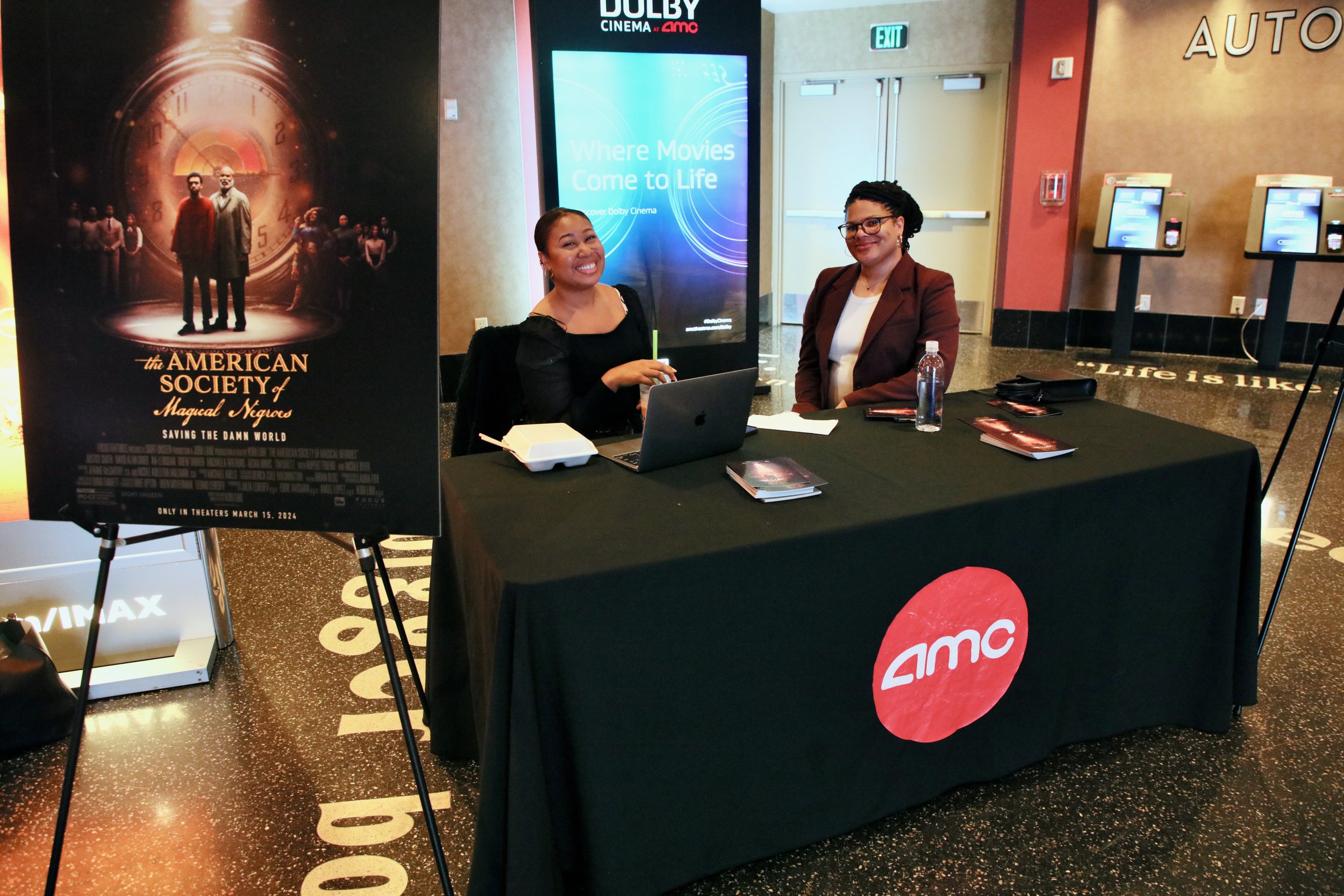
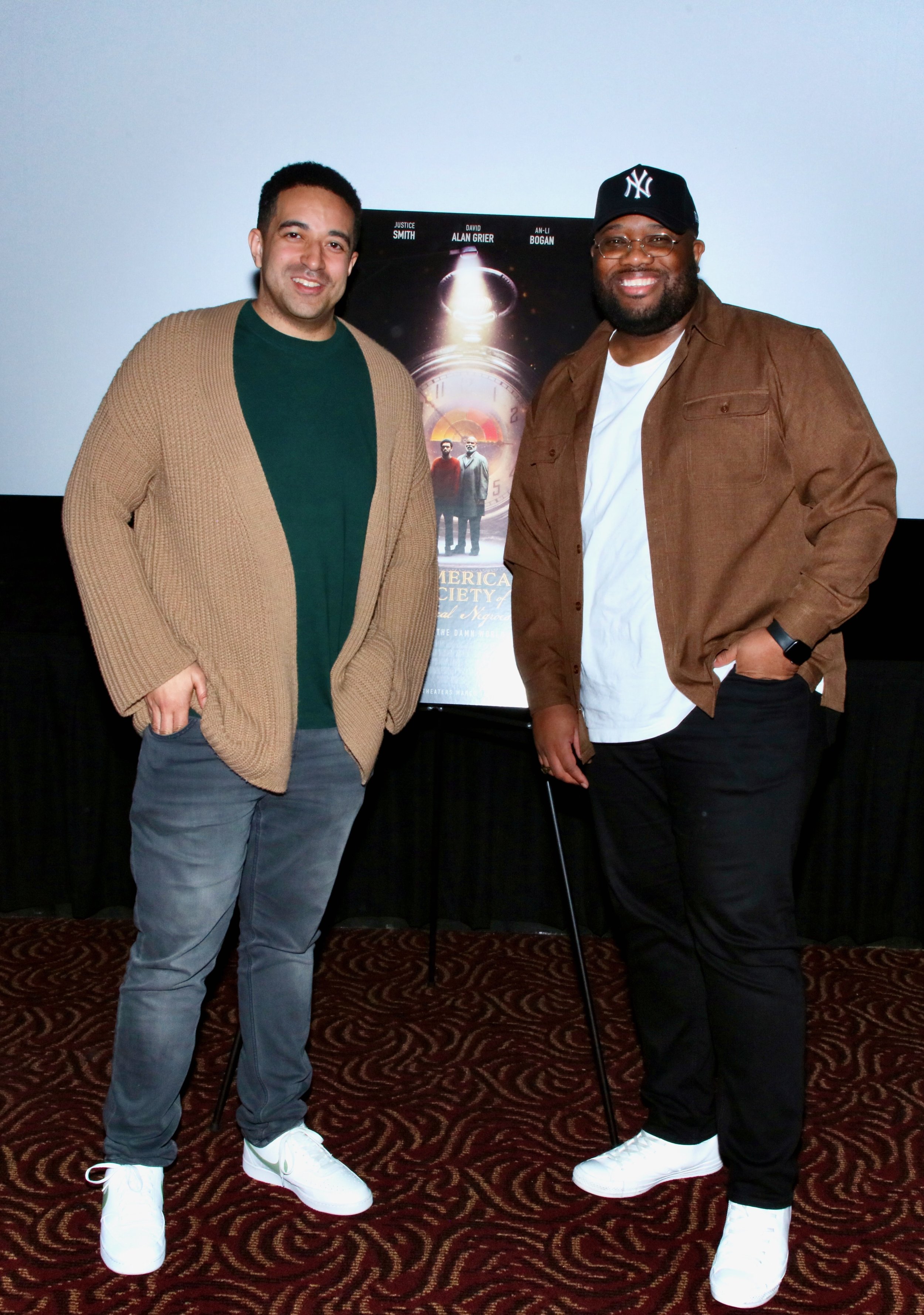
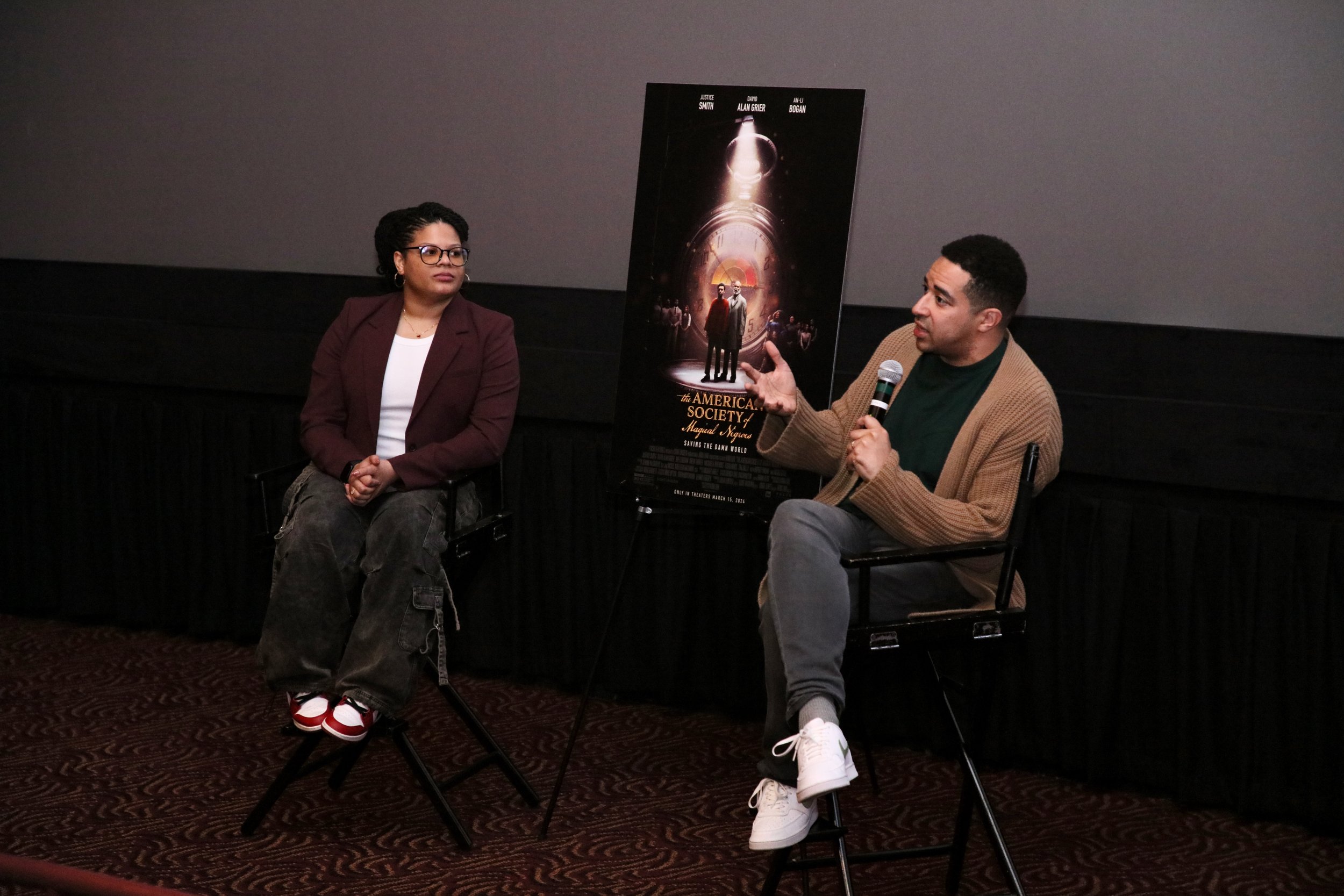
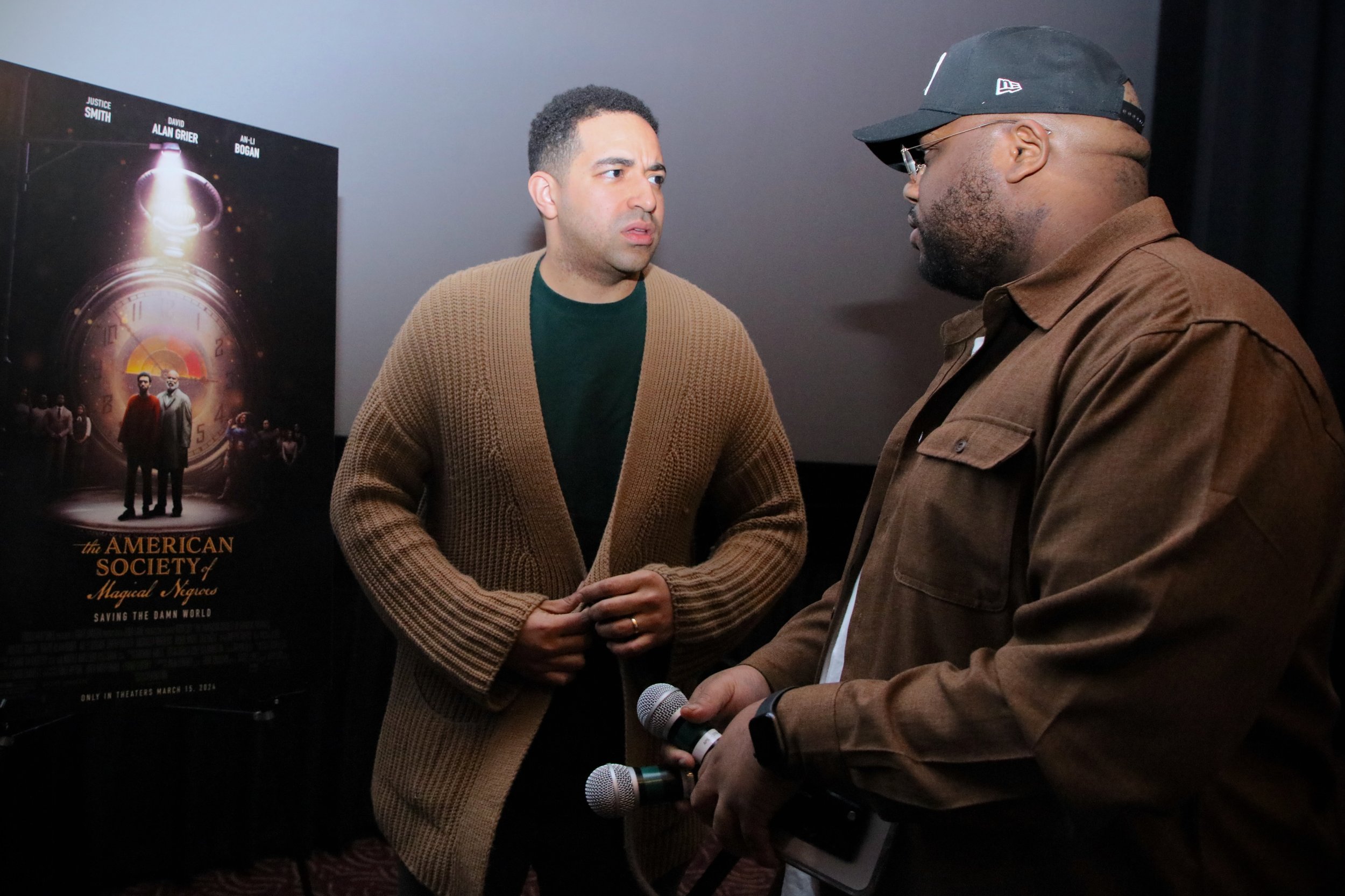
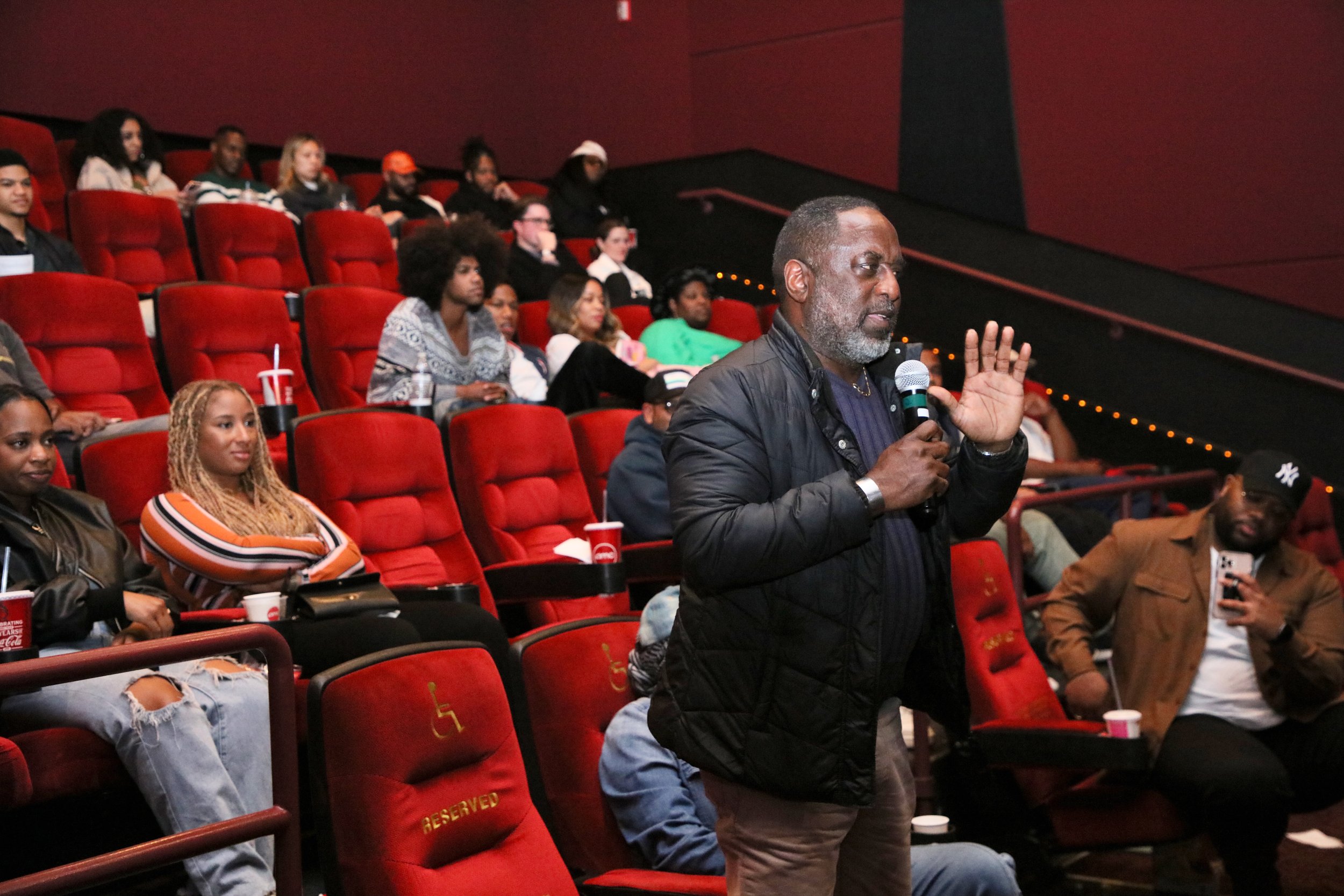
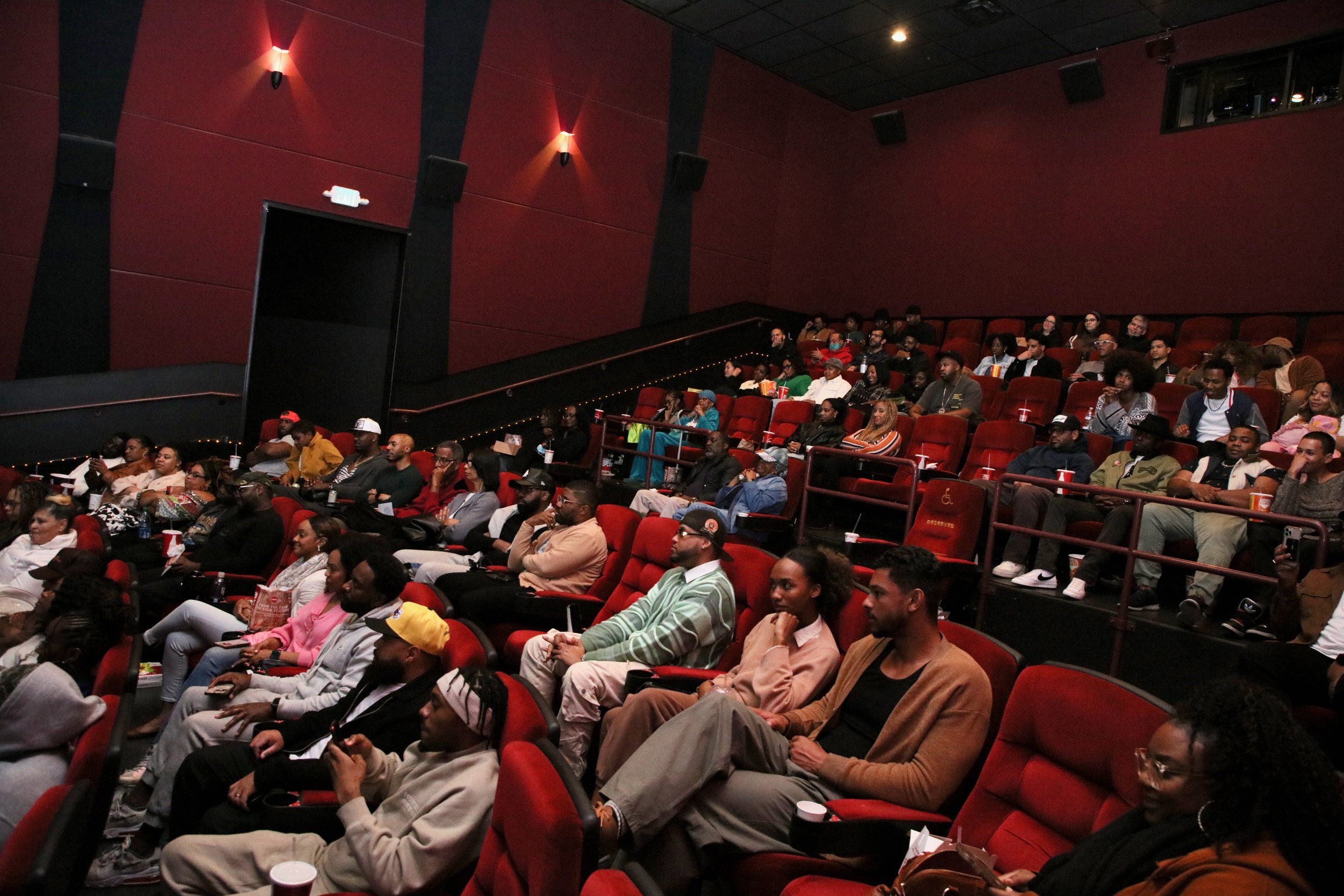
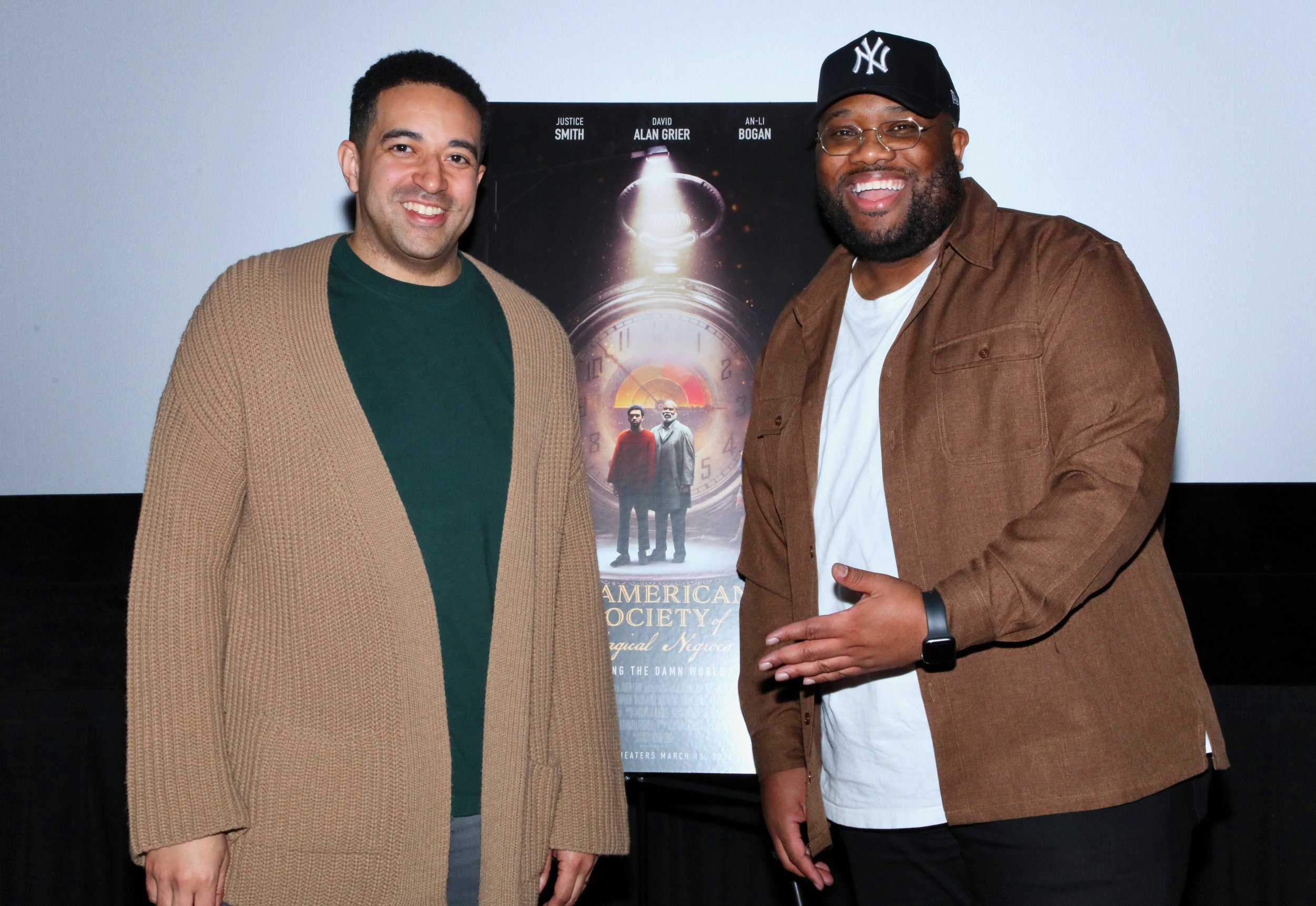
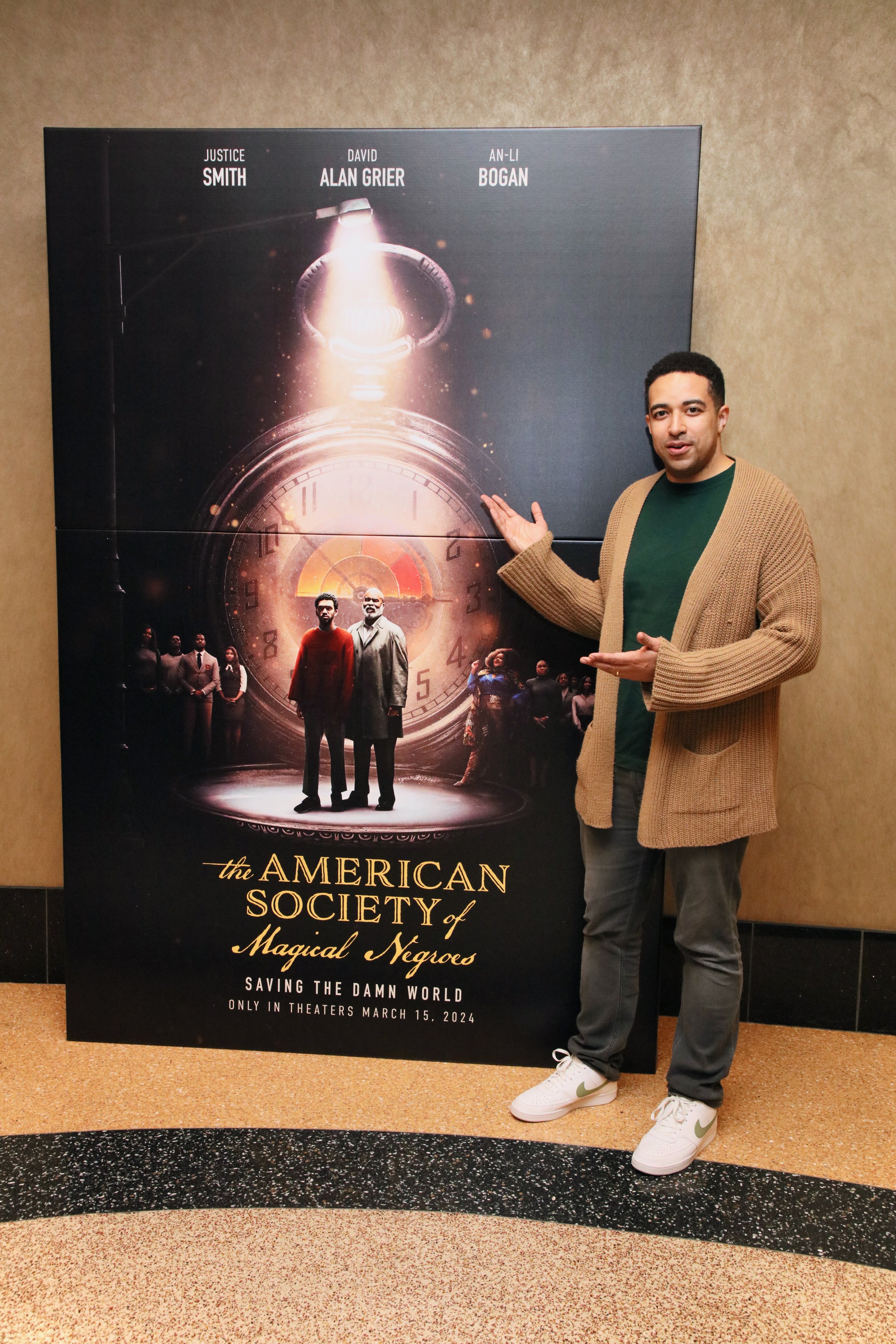
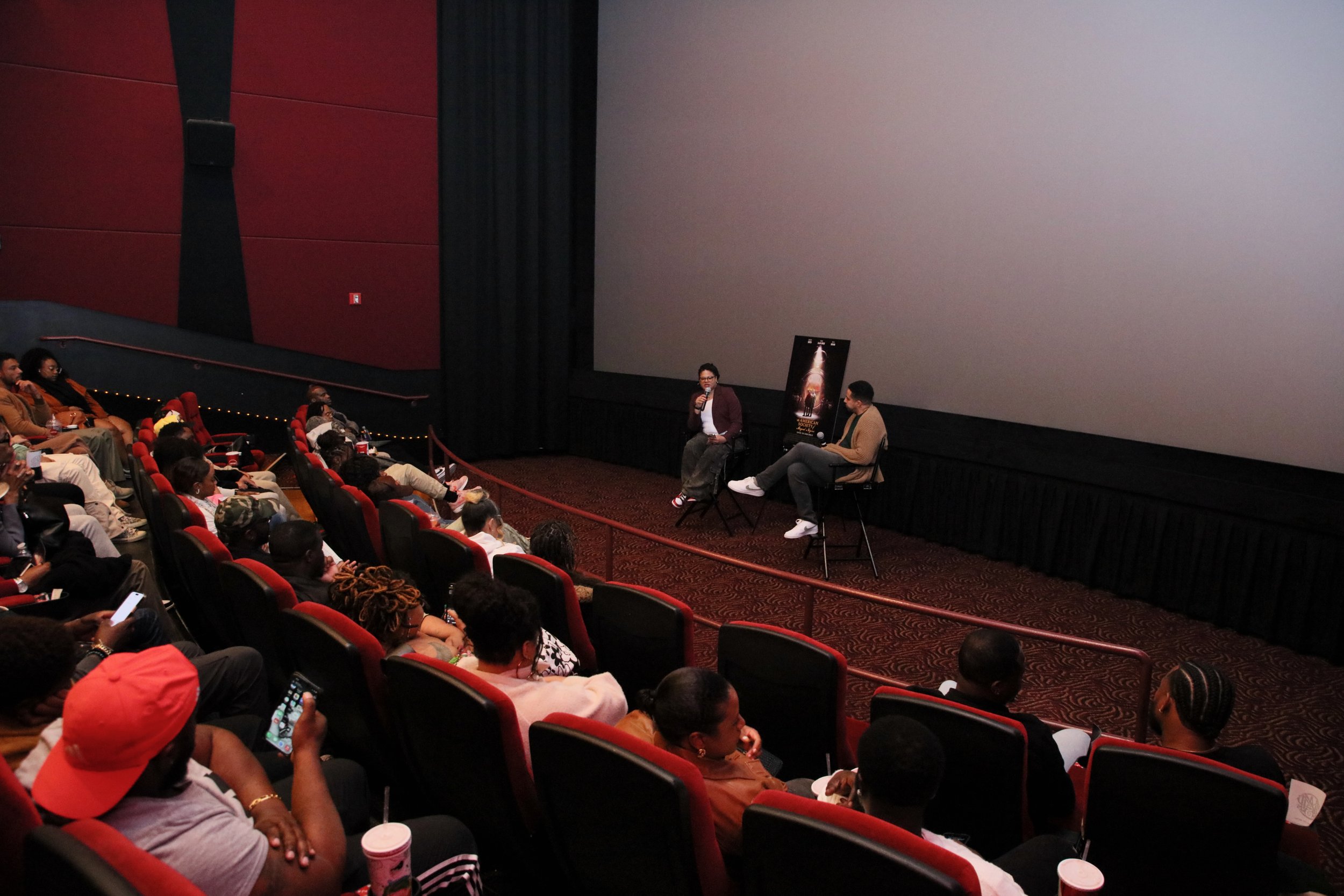
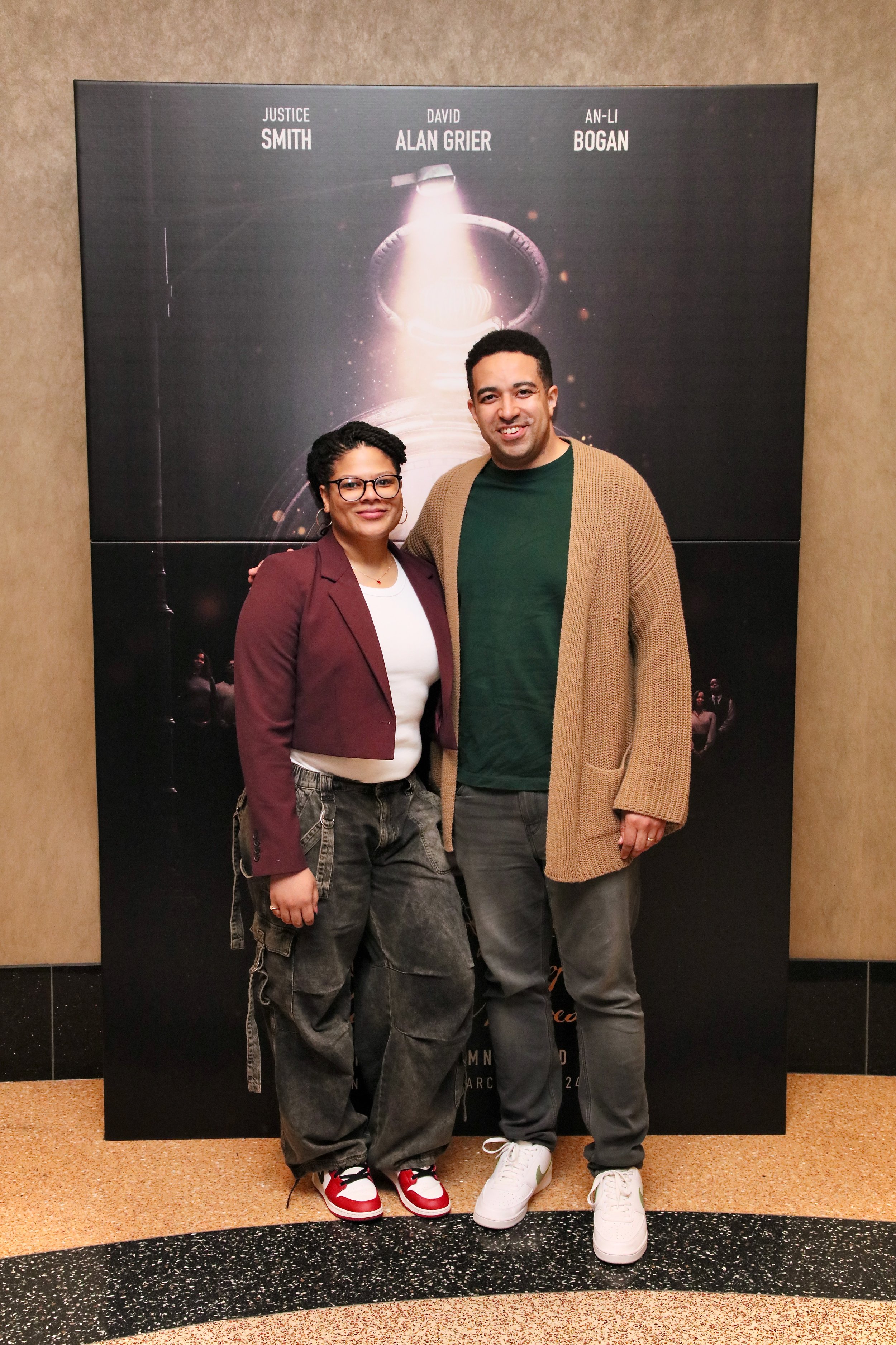
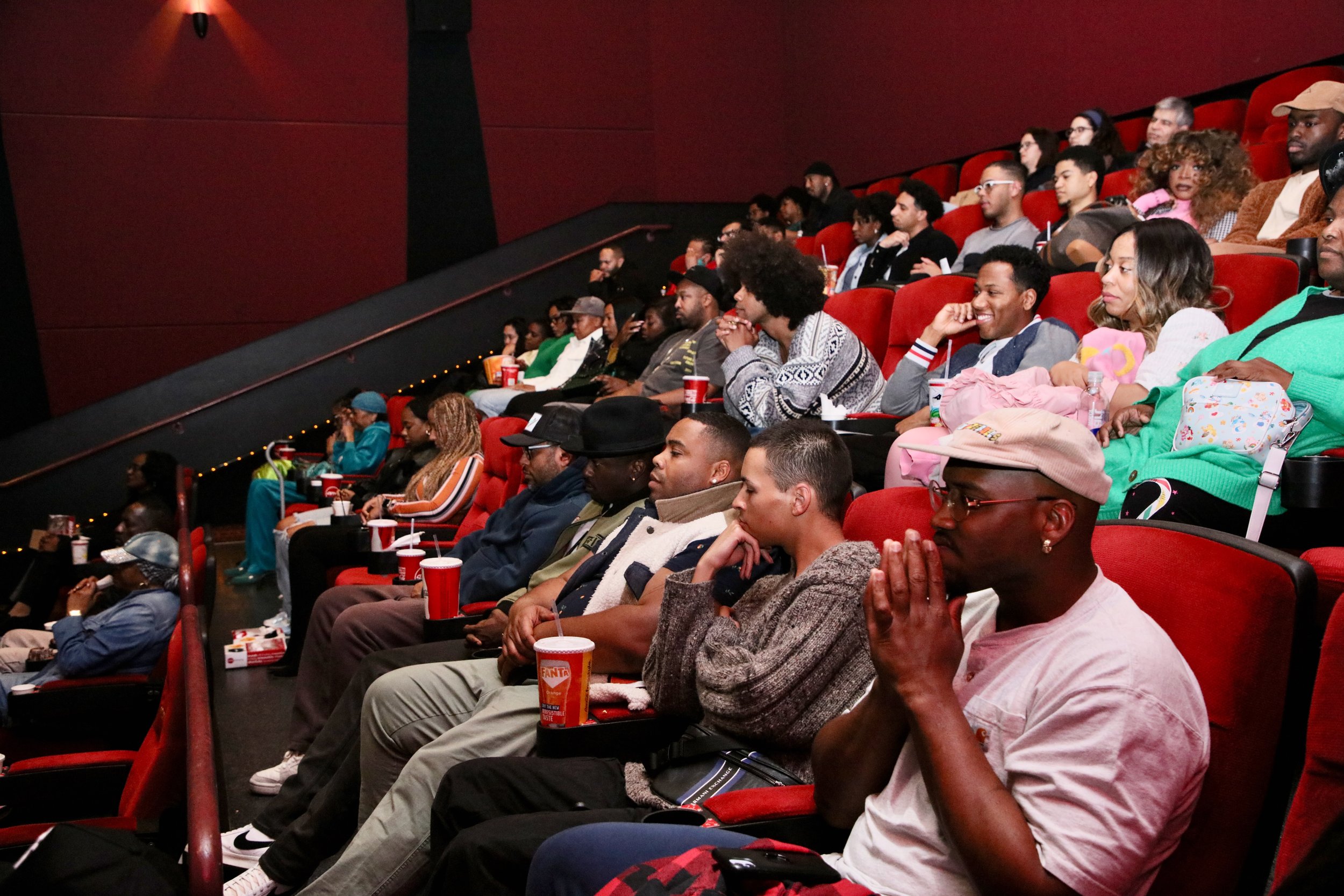
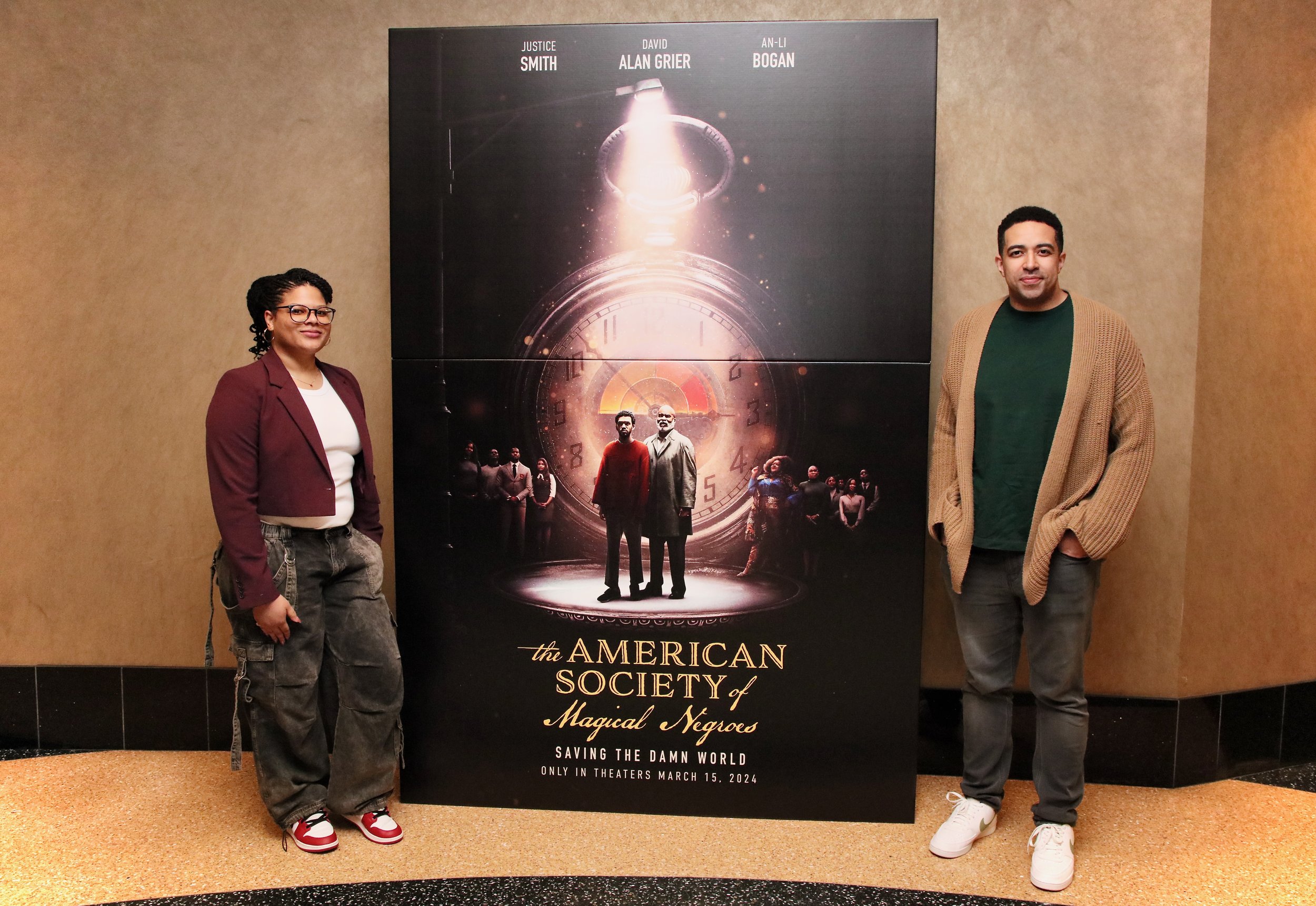
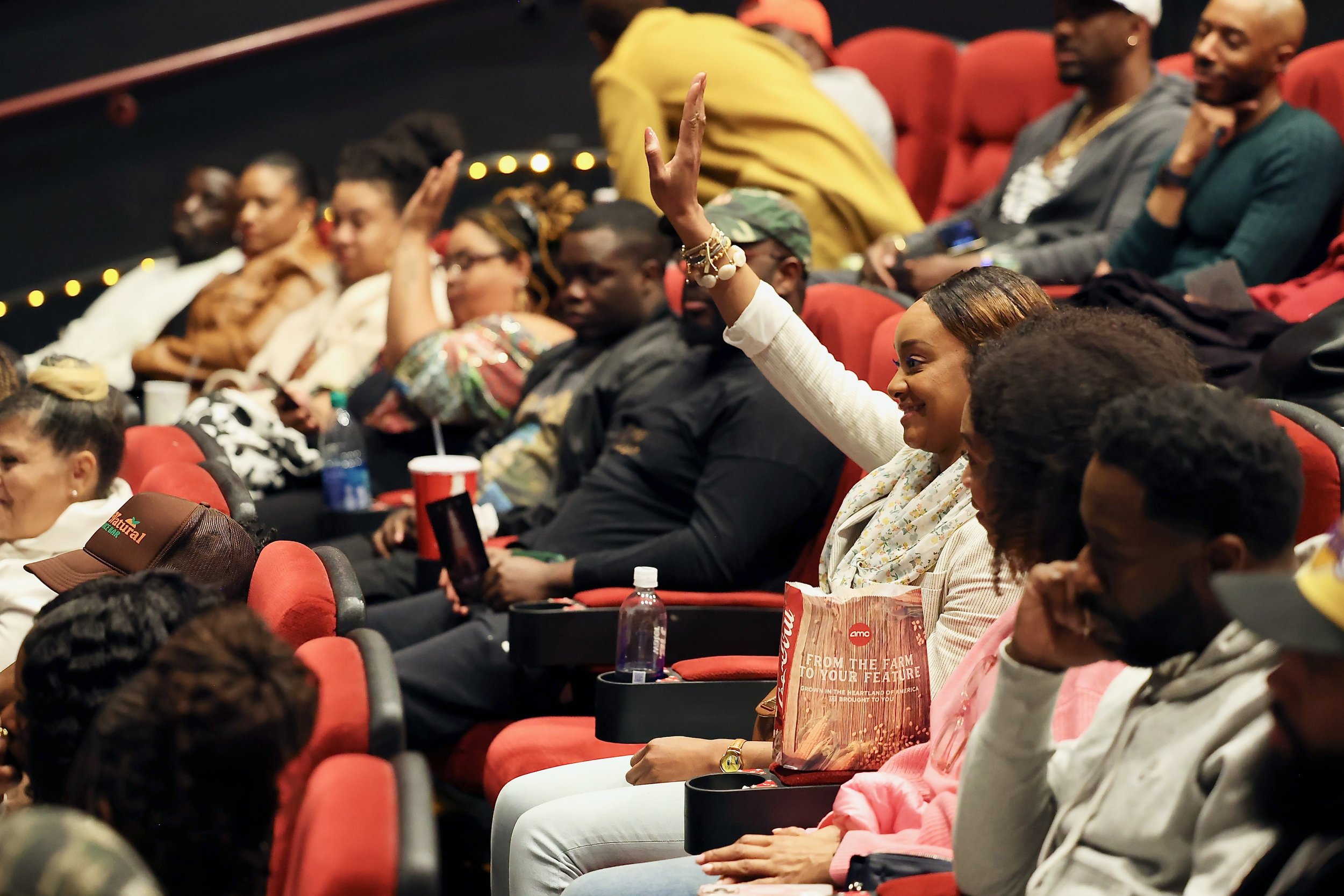
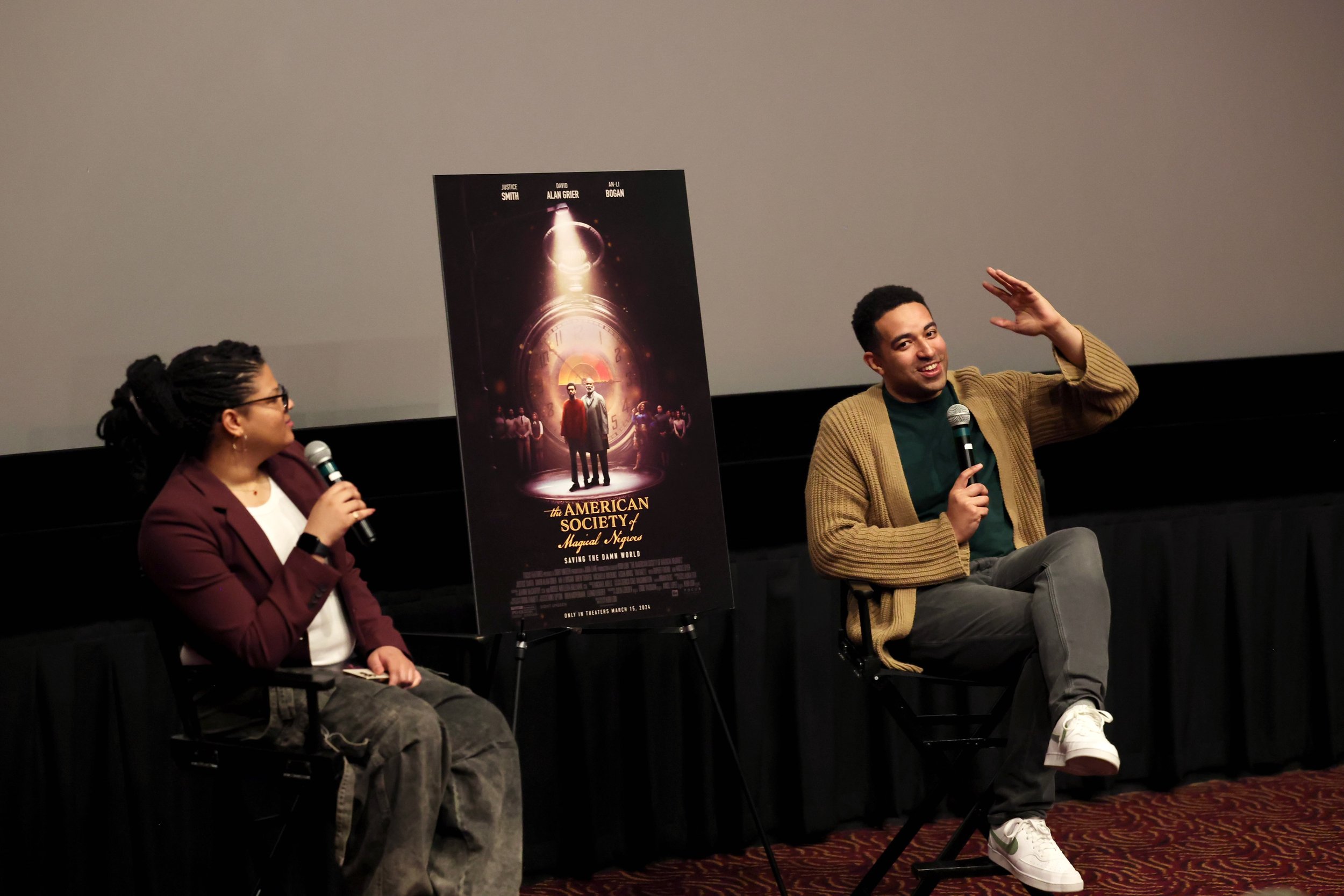
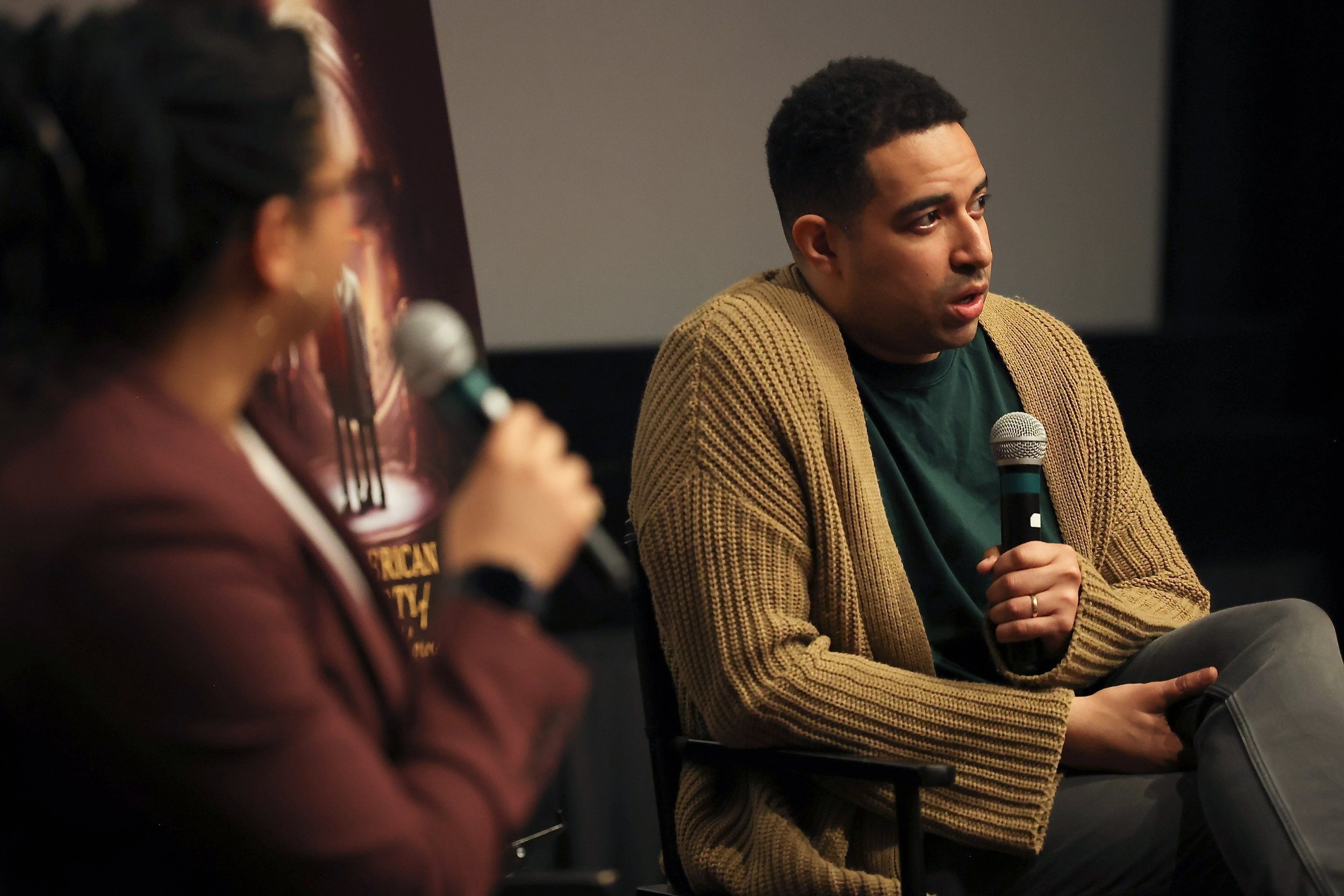
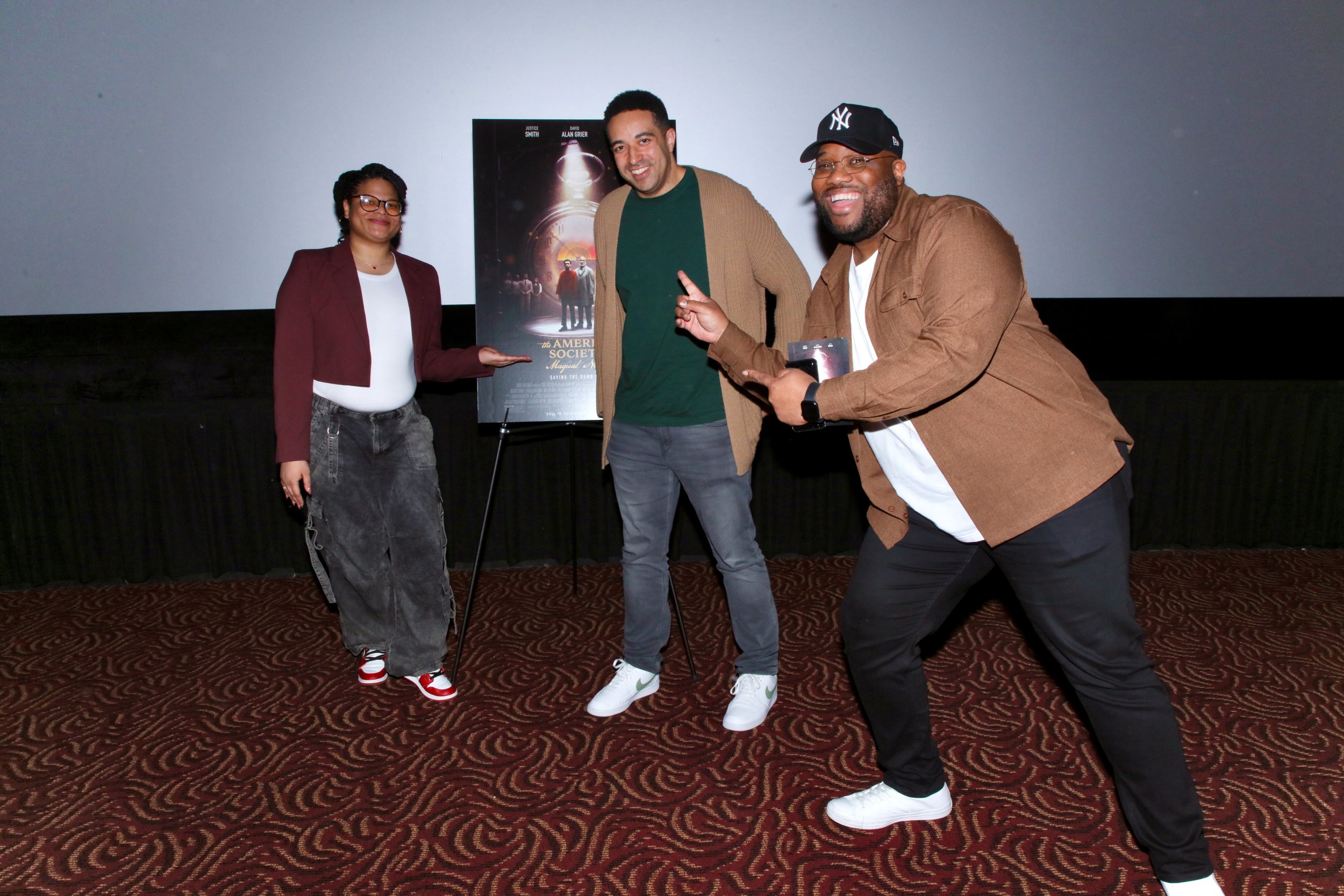
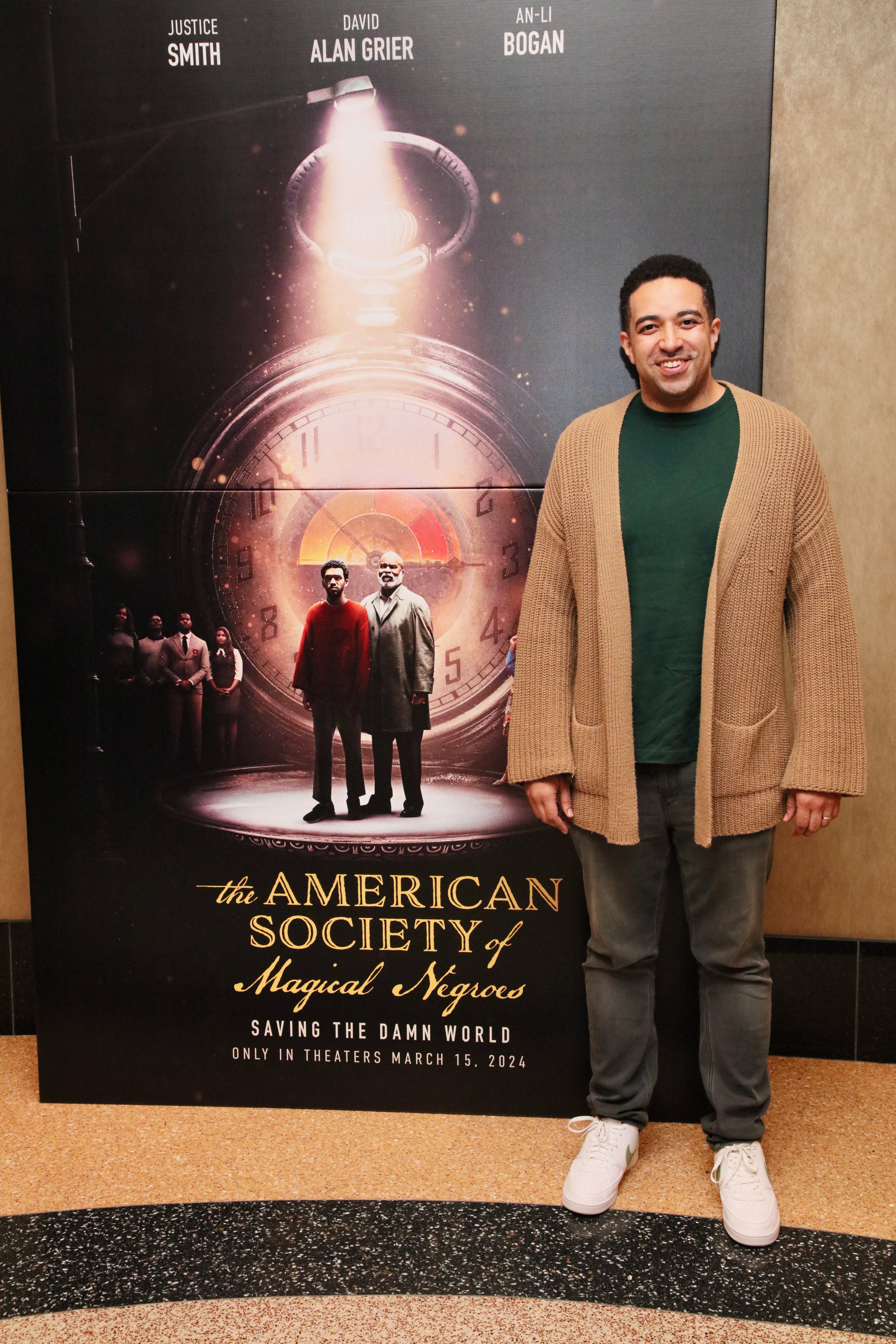
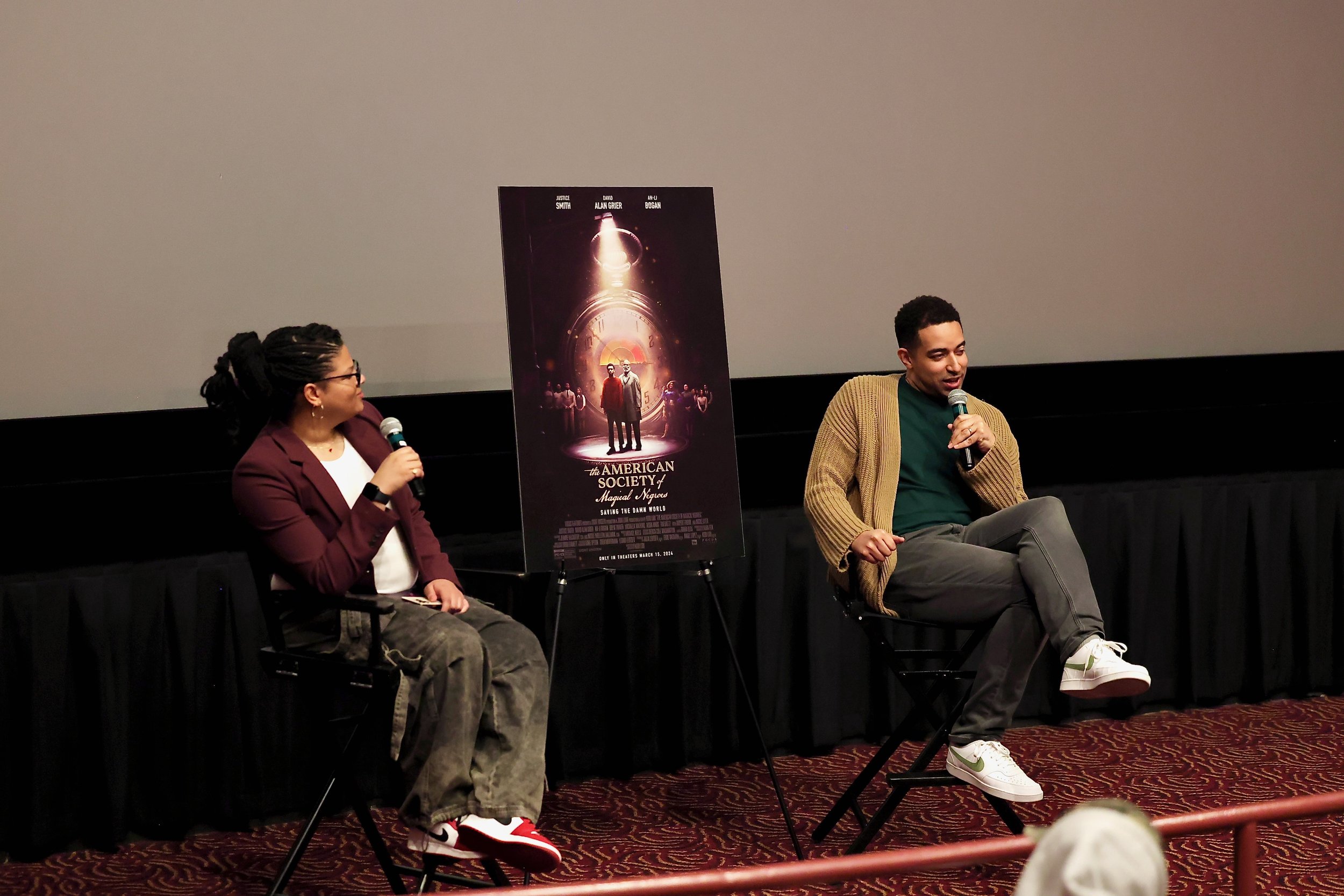
Photo Credit: Robin Marshall (@itsrobinlori)
ABOUT THE FILM
The American Society of Magical Negroes is a fresh, satirical comedy about a young man, Aren, who is recruited into a secret society of magical Black people who dedicate their lives to a cause of utmost importance: making white people’s lives easier.
STARRING
• Justice Smith as “Aren”
• David Alan Grier as “Roger”
• An-Li Bogan as “Lizzie”
• Drew Tarver as “Jason”
• Michaela Watkins as “Masterson”
• Rupert Friend as “Mick”
• Nicole Byer as “Dede”
DIRECTED BY
Kobi Libii
WRITTEN BY
Kobi Libii
PRODUCED BY
• Julia Lebedev, p.g.a.
• Eddie Vaisman, p.g.a.
• Angel Lopez, p.g.a.
• Kobi Libii, p.g.a
EXECUTIVE PRODUCED BY
• Mike Upton
• Oren Moverman
• Leonid Lebedev
GENESIS AND CONCEPT
An alum of both Sundance’s Screenwriters Lab and Directors Labs, THE AMERICAN SOCIETY OF MAGICAL NEGROES represents Kobi Libii’s feature directorial debut. Coming from a background in comedy, Libii says the film started as an idea he assumed would be a short form comedy sketch. “My experience with high concept, comedic ideas like this one is that most of them should be about three minutes long. But when I sat down to flesh it out as a sketch, I discovered that I was writing about something much bigger and far more personal: a very particular defense mechanism that I have been taught as a Black man about how to survive in White America. That defense mechanism has had a number of unintended consequences in my life in terms of my confidence and ability to take up space and my ability to move through the world. ‘The American Society of Magical Negroes’ is an elaborate metaphor to explore all of that.”
Libii continues, “White people write the Magical Negro trope as a kind of ‘Happy Slave’ archetype that imagines Black people truly enjoy contorting themselves to fit into white systems of power. I’m hijacking the trope to explore some of what it really costs Black people to do so.”
For Libii, humor is a part of how he navigates difficult subject matter. “Some of these issues are so raw, that it was important to me to use comedy to make conversation possible. For white people, it can be really unsettling to acknowledge the ways in which a country they love and identify with can still have such troubling power structures, and for Black people, it can be really painful to acknowledge the ways in which we’ve been coerced to adhere to those structures. At least it is for me. And by and large that’s what the Magical Negroes do: they choose survival over pride. It’s easy to be critical of their choice, but I’d rather be critical of the system that made them choose. And, more importantly, I want to build a monument to every person of color who’s ever had to make that impossible choice and hopefully, through the warmth and playfulness of the piece, let us all move forward.”
As part of that way forward, Libii aspires to create a more inclusive film than ones that use the trope. “One of the failings of the white authors of Magical Negro texts is not thinking through the experience of other marginalized people. And it was a value of mine in constructing this piece to be diametrically opposed to that ethos by including other marginalized groups—like non-Black women of color. Love stories between Black leads are so positive for the Black community, but I believe stories like this one have important work to do as well. Although Black people and other people of color have vastly different experiences and impacts, the power structure that we’re fighting is the same. And the more people who are working to dismantle it, the better. Especially because the success of that project is quite literally a life-or-death fight for Black people in particular.”
Libii also emphasizes that The American Society of Magical Negroes is also a universal story because, at the end of the day, it’s a love story. “The pairing of this particular racial satire with a full-hearted love story is satisfying to me because being seen by someone who loves you is the opposite of being looked at as a stereotype. And while there’s particular urgency for Black people to be seen as whole people, as individuals, all people deserve to be known for the people they really are. I’m contrasting being misunderstood and devalued with being truly regarded and appreciated, eccentricities and all. I find this counterpoint really meaningful.” Libii continues, “In some ways, though, it’s really two love stories: one between the obvious romantic leads, and the other between Aren and himself—coming to value himself more highly.” Another way Libii thinks about the film is that it’s simply about a guy who is not good at speaking up for himself but who learns to speak up for himself. “I think that's something that a lot of people can connect to and be heartened by.”
RATING
PG-13
RELEASE DATE
MARCH 15, 2024
GENRE
COMEDY, FANTASY
Writer/director Kobi Libii (right) on the set of THE AMERICAN SOCIETY OF MAGICAL NEGROES, a Focus Features release.
Photo Credit | Anne Marie Fox / Focus Features Copyright | © 2024 Focus Features, LLC.
DIRECTOR STATEMENT
The “Magical Negro” trope is a narrative device in which a Black, supporting character exists solely to serve a white protagonist’s storyline. They don’t have their own inner life but are relentlessly focused on helping white people learn, grow, or become less racist. Some have magical powers, but they all have a superhuman commitment to white, personal growth.
While it’s certainly not the only problematic stock character in movie history, the symbolism of the Magical Negro has always been particularly troubling to me: Black people only have worth inasmuch as we’re making a white protagonist’s life more colorful or meaningful; we don’t have value on our own. There’s a dark reflection of our society's broader values here: Black lives don’t always matter. And while the trope itself is certainly worthy of criticism, the real question I’m interested in is what does living in a society that has those values do to you? What has it done to me?
The premise of the satire is pretty simple: “What if being a Magical Negro was a real job? What if your whole Black existence were consumed by prioritizing white people and white comfort? What if you just got up every morning, and focused on being the version of yourself that fit into a white world and served every white person’s ‘story?’”
Obviously, this is absurd; exaggerated to make the make the film a comedy. Obviously, this is not something we do.
But if I’m honest. Really honest. More honest than I’m comfortable being: I relate to the Magical Negroes’ job description.
Because one thing this society taught me was to assimilate. Teachers encouraged me to code switch. I did. They controlled my grades, my future. My father taught me to be incredibly nice and non-threatening in any interaction with the police. He, having spent formative years in an America where lynchings still occurred, made the urgency of the matter harrowingly clear; don’t worry about your pride, just make the powerful white person comfortable.
Like a good A-student, I over-learned these lessons. And, for years, had internalized a relationship to white people that was too deferential. On some level, I believed this was necessary to stay alive.
As you can imagine, this is not the proudest thing to admit—everyone would rather look in the mirror and see a powerful Black Revolutionary. And I can’t stress enough how much I’m speaking for myself here, not All Black People Everywhere. But if I’m honest, really honest, this was a part of my particular response to racism.
And while this is personally embarrassing, it is also, I believe, a savage indictment of America. That, as a Black person, I did not feel that being myself–uninhibited, fully expressed–gave me the best chance to thrive, or even survive. That I was discouraged, by a sweeping, insidious culture, that makes things like Magical Negro movies over and over again, from prioritizing my own happiness as much as that of the white people around me.
The question here is this: who gets to be the main character? Not just in movies, but in American life more broadly. Who’s comfort and safety are prioritized and whose aren’t? Whose lives are assumed to matter and whose require marches and movements to protect? Is Aren (my film’s Black protagonist) doomed to be the soulful sidekick (peripheral, even expendable) or will it become his story with his wants and feelings central? To put it in movie terms, will he be the one who ‘gets the girl’?
This film is my attempt to process all of this. It’s a fantasy because strict reality can’t possibly reflect the creative, fantastical things Black people have to do to survive in America. It’s a comedy because the shame of this defense mechanism is so radioactive that I have to laugh to make an honest conversation about it bearable. And it’s a love story because, to me, being seen and appreciated by someone you love is the opposite of a society that tells you your life doesn’t matter.

